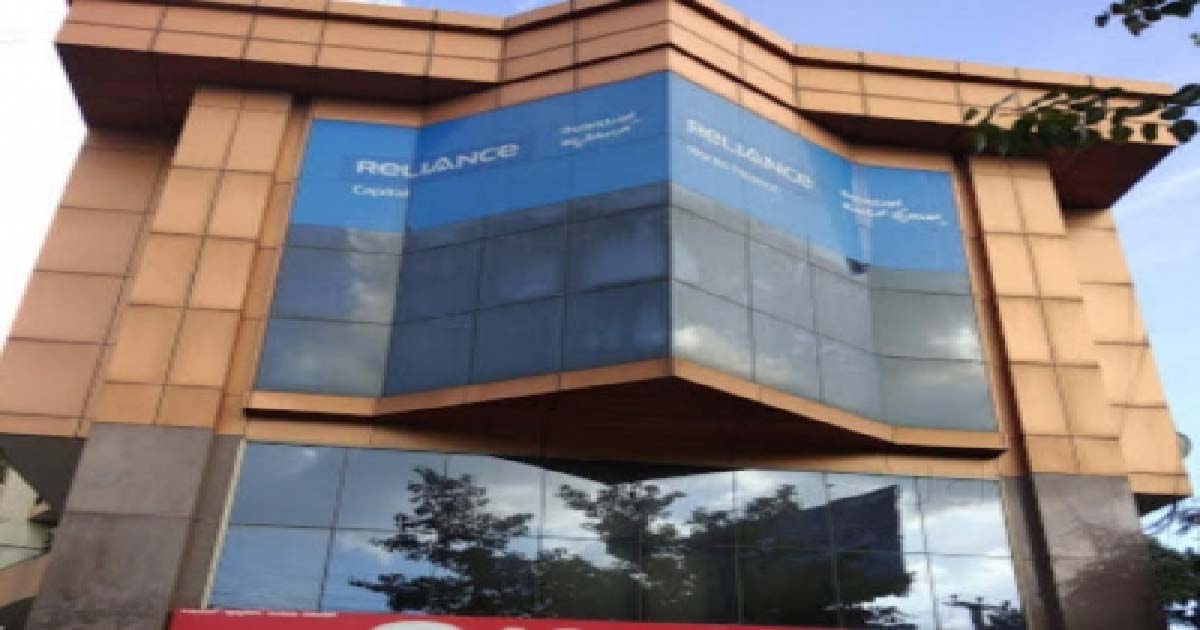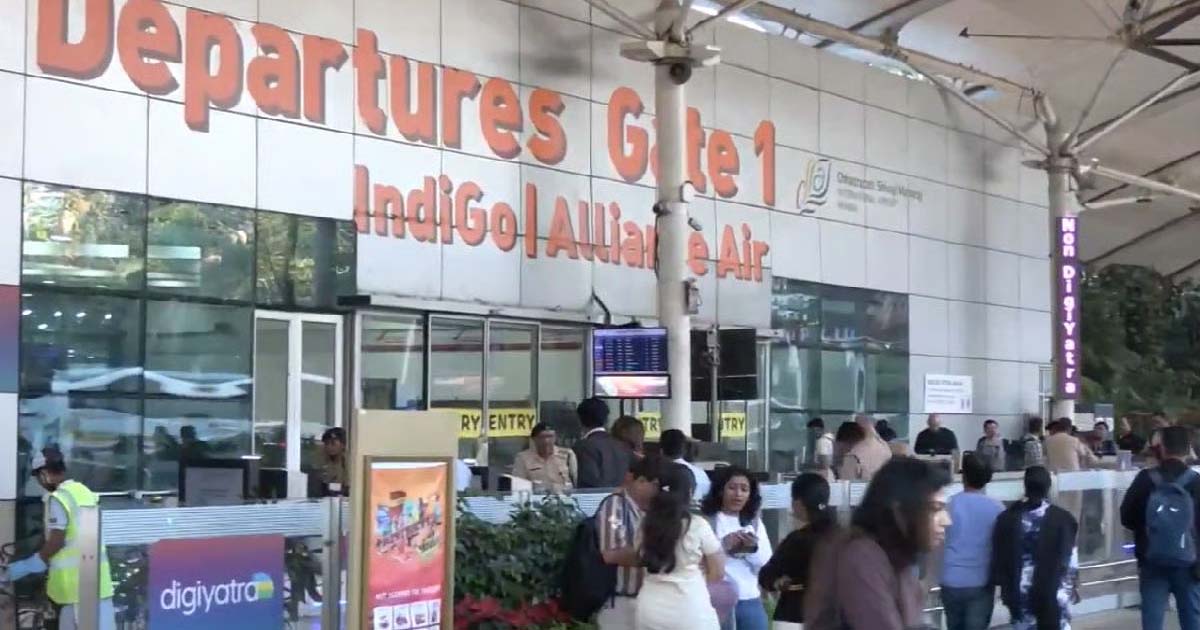Business
Majority feel MSP hike will help improve incomes of farmers

Issues related to farmers have been contentious for quite some time in the country, particularly after the Union Government passed three farm reform laws in the Parliament in 2020 and was compelled to withdraw the laws after a sustained await action by some farmer groups.
While the government insists that it is taking all possible steps to improve the incomes of farmers, opposition parties and some farm groups insist that the government is paying mere lip service to the sector without actually doing anything concrete.
The farm groups who protested against the three laws were not satisfied with the withdrawal but want to pass a fresh law that will make it mandatory for all players, including those in the private sector, to compulsorily pay the minimum support prices to farmers.
Though the government has not listened to the demand, it has publicly committed that it will keep raising the MSP as and when needed on a regular basis.
It is as part of this commitment that the government announced increased MSP for 14 crops whose harvesting will be due later this year.
A majority of respondents covered during a nationwide survey conducted by C Voter on behalf of IANS were of the opinion that this move will help improve the incomes of farmers. While more than 559 per cent of the respondents were of this opinion, the rest felt that farmer incomes would not improve despite the higher MSP.
There was hardly any difference in the responses between rural and urban respondents. In virtually no category did a majority of more than 50 per cent feel that the move to hike MSP will not lead to higher incomes. Unusual heat waves and other weather conditions have prompted the government to estimate that production will be lower than the initially estimated 111 million tonnes.
Business
Sensex, Nifty open in green zone amid mixed global cues

Mumbai, Dec 10: Indian benchmark indices opened in green zone on Wednesday after two days of consecutive losses, amid mixed global cues and investor optimism of a US Fed rate cut.
As of 9.30 am, Sensex advanced 231 points, or 0.27 per cent at 84,898 and Nifty added 66 points, or 0.26 per cent to 25,906.
The broadcap indices performed in line with the benchmarks, with the Nifty Midcap 100 up 0.47 per cent and the Nifty Smallcap 100 adding 0.50 per cent.
All the sectoral indices on NSE were trading in the green, with metal, power and realty being the major gainers, up around 0.5 per cent.
Analysts said that liquidity has kept valuations high, justifying selling in the broader markets. A major concern is the excessive delay in the finalisation of the US-India trade deal. US President Donald Trump’s statement on action against India for dumping rice in the US can hurt traders’ sentiments.
Traders expect a third consecutive Fed rate cut on Wednesday (US time) and will focus on the central bank’s latest dot plot, economic projections, and Chair Jerome Powell’s comments, according to reports.
Market fundamentals are turning in favour of India, while higher growth and corporate earnings are achievable in the quarters ahead. The fiscal and monetary stimulus provided this year have started producing results, they added.
The US markets ended mostly in the red zone overnight, as Nasdaq advanced 0.13 per cent, the S&P 500 dropped 0.09 per cent, and the Dow dipped 0.38 per cent.
Most of the Asian markets were trading lower amid investor caution ahead of US Federal Reserve interest rate decision following a weak session on the Wall Street. Further, China’s inflation data also influenced traders’ sentiments as consumer prices edged up 0.7 per cent from a year earlier, its highest level since February last year.
In Asian markets, China’s Shanghai index dipped 0.72 per cent, and Shenzhen dropped 0.56 per cent, Japan’s Nikkei dipped 0.38 per cent, while Hong Kong’s Hang Seng Index lost 0.31 per cent. South Korea’s Kospi added 0.17 per cent.
On Tuesday, foreign institutional investors (FIIs) sold equities worth Rs 3,760 crore, while domestic institutional investors (DIIs) were net buyers of equities worth Rs 6,225 crore.
Business
CBI books Reliance Commercial Finance, its promoters in Rs 57.47 crore bank fraud case

Mumbai, Dec 9: The Central Bureau of Investigation (CBI) on Tuesday said it has filed a criminal case against Reliance Commercial Finance Ltd (RCFL) and its promoters and directors over allegedly causing wrongful loss of Rs 57.47 crore to Bank of Maharashtra.
The case has been registered against RCFL — a company of Reliance ADA Group, its promoters/directors and unknown bank officials, on the allegations of criminal conspiracy, cheating and criminal misconduct and thereby, the CBI said in a statement.
According to the statement, the loan account of Reliance Commercial Finance Ltd was declared an NPA by the bank on March 25, 2020 and also as fraud on October 4, 2025, for causing wrongful loss of Rs 57.47 crore to Bank of Maharashtra.
“RCFL was availing loans to the tune of Rs 9,280 crore from 31 banks/ FIs/NBFCs/Corporate Bodies, etc., including Bank of Maharashtra. A thorough investigation will be conducted into the allegations of defrauding all the banks/FIs, etc. by the accused company,” said the CBI.
The probe agency obtained search warrants from the court of a Special CBI judge, Mumbai and commenced searches at the official premises of RCFL at Mumbai and the residential premises of Devang Pravin Mody, Director of the company, at Pune, on December 9.
“Several incriminating documents have been observed and are being taken into possession during searches. Searches are in progress,” the CBI said.
Meanwhile, the Enforcement Directorate (ED) has filed a supplementary charge sheet against Reliance Power Ltd and 10 others, in the case of fake bank guarantees of Rs 68 crore submitted by Reliance Power Limited to the Solar Energy Corporation of India (SECI) for the purpose of securing a tender issued by it. ED attached the proceeds of crime worth Rs 5.15 crore as well.
Reliance Power Ltd said in a statement that “ED allegations have not yet passed through judicial scrutiny and the Company has not been held guilty of any wrongdoing”.
“As per law settled by the Supreme Court, the company will get an opportunity to put across its case and facts before the court, even before cognisance, so filing of this complaint does not affect the affairs of the company in any manner,” said the company in an exchange filing.
Business
IndiGo Crisis Day 8: Mumbai Hit Hard As Flight Chaos Enters Day 8; Over 30 Cancellations Snarl City’s Air Travel

Mumbai: air travel operations remained disrupted on Tuesday as IndiGo’s nationwide aviation crisis stretched into its eighth consecutive day, causing large-scale cancellations and commuter chaos across the country. But Mumbai, one of IndiGo’s busiest and most critical hubs, continued to bear a brunt of the meltdown, with passengers facing uncertain schedules and repeated last-minute cancellations.
By 9:30 am, Chhatrapati Shivaji Maharaj International Airport had already logged 31 IndiGo cancellations, including 14 inbound flights and 17 outbound departures. Long queues, anxious passengers and repeated rescheduling announcements dominated Terminal 2 through the morning peak hours, leaving thousands scrambling to adjust their plans.
Across India, more than 200 IndiGo flights were cancelled today. Bengaluru topped the list with 121 cancellations, followed by Hyderabad (58), Chennai (41) and Kerala with four. But for Mumbai passengers, many of whom rely on IndiGo for frequent business and leisure travel, the interruptions continued to be especially disruptive.
The turmoil, which began last Tuesday, has snowballed into a full-blown operational crisis. Over 4,500 flights have been cancelled between last week and Monday. Even though IndiGo claimed on Sunday that operations were ‘stabilising,’ the airline saw over 500 fresh cancellations on Monday alone, leaving passengers stranded overnight at multiple airports, including Mumbai.
The root of IndiGo’s meltdown has been linked to the airline’s inability to implement the second phase of India’s updated Flight Duty Time Limitations (FDTL), which came into effect in November. The revised norms, aimed at cutting pilot fatigue and extending rest periods, required IndiGo to restructure crew rosters. However, the airline has reportedly been struggling with a pilot shortage, leading to a mismatch between the new regulations and its available manpower.
To reduce pressure on airlines and mitigate the ongoing disruption, aviation regulator DGCA temporarily relaxed certain night-duty and weekly rest requirements for pilots. This relaxation is expected to help airlines stabilise operations through emergency rostering flexibility.
Civil Aviation Minister Ram Mohan Naidu told Parliament that IndiGo did not raise any concerns during a crucial meeting on December 1, just a day before the cancellations spiralled. He attributed the chaos to the airline’s internal system rather than regulatory pressure.
The government has now decided to sharply cut IndiGo’s winter schedule. The airline, which operates 2,200 flights a day and commands nearly 60 per cent of the domestic market, will see its schedule curtailed, with several routes handed to other carriers to prevent further passenger inconvenience.
-

 Crime3 years ago
Crime3 years agoClass 10 student jumps to death in Jaipur
-

 Maharashtra1 year ago
Maharashtra1 year agoMumbai Local Train Update: Central Railway’s New Timetable Comes Into Effect; Check Full List Of Revised Timings & Stations
-

 Maharashtra1 year ago
Maharashtra1 year agoMumbai To Go Toll-Free Tonight! Maharashtra Govt Announces Complete Toll Waiver For Light Motor Vehicles At All 5 Entry Points Of City
-

 Maharashtra1 year ago
Maharashtra1 year agoFalse photo of Imtiaz Jaleel’s rally, exposing the fooling conspiracy
-

 National News1 year ago
National News1 year agoMinistry of Railways rolls out Special Drive 4.0 with focus on digitisation, cleanliness, inclusiveness and grievance redressal
-

 Maharashtra1 year ago
Maharashtra1 year agoMaharashtra Elections 2024: Mumbai Metro & BEST Services Extended Till Midnight On Voting Day
-

 National News1 year ago
National News1 year agoJ&K: 4 Jawans Killed, 28 Injured After Bus Carrying BSF Personnel For Poll Duty Falls Into Gorge In Budgam; Terrifying Visuals Surface
-

 Crime1 year ago
Crime1 year agoBaba Siddique Murder: Mumbai Police Unable To Get Lawrence Bishnoi Custody Due To Home Ministry Order, Says Report












